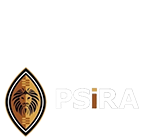The use of the so called telephone “bug” in the business environment as a weapon to combat fraud and theft is not new. However, we believe that bugging / covert surveillance are valuable tools in the fight against crime, but are not always considered as an option, because of uncertainty as to their legality. Many of our clients over the years have expressed concern about the “do’s and don’t” in the respect of bugging / covert surveillance. We would like to share with you some of the answers to their questions. FREQUENTLY ASKED QUESTIONS:- Q. Is it legal to bug the phone at my office? A. Yes – but be aware of the following conditions:- The Constitution clearly upholds the right go privacy which includes the right no to have:-
- Their person or home searched.
- Their property searched.
- Their possessions seized.
- The privacy of their communications infringed. This section applies to a person’s private property and their private communication. The operative word being “private”.
However the interception and Monitoring prohibition Act (1992) as amended (1995) indicated that communications undertaken at an employer’s place of work, and made in connection wit h the work carried out by the employee on behalf of the employer may be intercepted if there is a genuine suspicion of fraud, theft, corruption, bribery, irregularities etc. So, if you are the manager or owner of a business, and you have reasonable grounds to suspect that you are the victim of fraud or theft, and members of your staff, supplies or customers could be involved, you are entitled to take reasonable steps to protect the assets of your business. Note that the employer may not listen to private conversations, but may ask the employee to account for his activities during working hours. REFERENCE:
- Protea Technology Ltd and AN Other versus Wainer and Others 1997 BCLR 1225 (w). The court had to decide whether clandestine tape recordings made by the applicant were admissible as evidence, or whether they contravened the interception and monitoring prohibition Act 127 (1997), or were in breach of the respondent’s Constitutional right to privacy.
- The court found that the parties concerned were interrelated as employer, and employee, and that telephone conversations of the employee relating to the employers business affairs were not “private” and therefore protected under the constitution.
- NB: The court also held that the employer could not listen to the private conversations of the employee!
Q. Do I have to tell the employee concerned? A. See above. No, not if it is a business phone, on your premises and you suspect a threat to your business. Q. How does the CCMA regard this? A. See above. They will accept evidence received as a result of the bug, provided it is a business phone and you have not listened in to private calls. Q. Can I bug the employee’s home phone? A. No. This would amount to an infringement of their constitutional rights. Q. Am I allowed to bug an office at my business? A. See Above. Yes, if you have a genuine reason to believe that your business is under threat, and could involve the staff concerned. Q. Do I have to tell the employees using that office? A. See above. No, not if you can prove that your business is being compromised. Conclusion: Yes! You may bug phones at your business premises in certain circumstances, as outlined above, but preferably engage the services of professionals when doing so, to stay on the right side of the applicable laws. Contact Justicia Investigations for professional advice.


